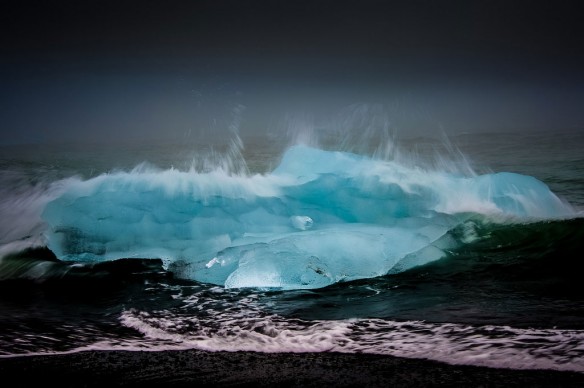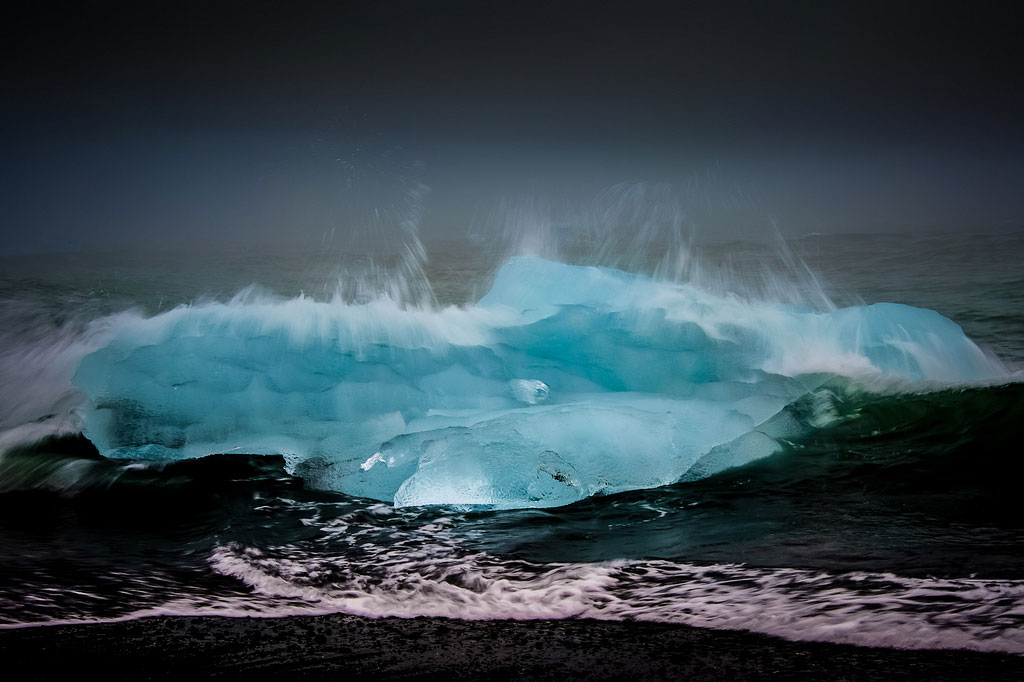
Wave and ice. Photo source: ©© Howard Ignatius
Excerpts;
As the climate warms and sea ice retreats, the North is changing. An ice-covered expanse now has a season of increasingly open water that is predicted to extend across the whole Arctic Ocean before the middle of this century. Storms thus have the potential to create Arctic swell, huge waves that could add a new and unpredictable element to the region.
A University of Washington researcher made the first study of waves in the middle of the Arctic Ocean, and detected house-sized waves during a September 2012 storm. The results were recently published in Geophysical Research Letters.
“As the Arctic is melting, it’s a pretty simple prediction that the additional open water should make waves,” said lead author Jim Thomson, an oceanographer with the UW Applied Physics Laboratory…
Arctic ice used to retreat less than 100 miles from the shore. In 2012, it retreated more than 1,000 miles. Wind blowing across an expanse of water for a long time creates whitecaps, then small waves, which then slowly consolidate into big swells that carry huge amounts of energy in a single punch…









